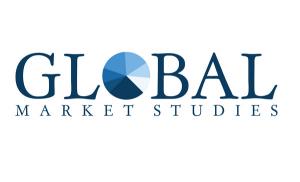Global Remote Healthcare Diagnostics Market : Report Position, Recent Developments, Trends and Future Forecast 2023-28
Global Remote Healthcare Remote Diagnostics Market size is expected to reach USD 2 billion by 2028 at a CAGR of 25% over the forecast period 2023 to 2028.
LAS VEGAS, NEVADA, UNITED STATES, March 5, 2023 /EINPresswire.com/ -- Originally Posted : https://www.globalmarketstudies.com/global-remote-healthcare-diagnostics-market/A recent report by Global Market Studies has revealed that the Remote Healthcare Diagnostics Market is estimated to grow at a CAGR of 25% to reach a value of over USD 2 billion by 2028. This market has been growing rapidly in recent years, driven by factors such as the increasing prevalence of chronic diseases, rising healthcare costs and advancements in technology. The COVID-19 pandemic has accelerated the adoption of remote healthcare solutions as more people seek safe and convenient ways to access medical care.
The Remote Healthcare Diagnostics Market refers to the use of technology and digital tools to remotely diagnose and monitor patients' health conditions, without the need for in-person appointments. Remote healthcare diagnostics can include various tools and devices, such as wearables, telemedicine platforms, mobile health apps, and remote monitoring systems.
Access a sample of report and more information about : Global Remote Healthcare Diagnostics Market
MARKET DYNAMICS
1) Drivers:
▪ Chronic diseases: Incidence of chronic diseases such as cancer, diabetes, and cardiovascular diseases has been increasing, leading to a growing demand for diagnostic tests and tools that can aid in early detection, monitoring, and management of these conditions.
▪ Advancements: Advances in technology have enabled the development of more accurate and efficient diagnostic tools, such as molecular diagnostics, point-of-care testing, and imaging systems.
▪ Aging population: The world's population is aging, which has led to an increase in age-related diseases and conditions. This has created a growing demand for diagnostic tests that can aid in the early detection and management of these conditions.
▪ Personalized medicine: Personalized medicine is becoming increasingly popular, as it allows for more targeted and effective treatments. Diagnostic tests play a crucial role in personalized medicine, as they enable healthcare providers to customize treatments.
▪ Preventive healthcare: Governments and healthcare organizations are increasingly focusing on preventive healthcare, which includes regular health screenings and diagnostic tests in the early detection and prevention of diseases.
▪ COVID-19 pandemic: The pandemic has also accelerated the adoption of telemedicine and remote healthcare solutions, including remote diagnostic tools.
2) Restraints:
▪ High cost: Certain diagnostic tests are expensive, which can be a concern for low- and middle-income countries, leading to disparities in healthcare access and outcomes.
▪ Regulatory hurdles: The healthcare diagnostics market is highly regulated, which can create barriers to entry for new players and slow down the development and approval of new diagnostic tests.
▪ Lack of skilled professionals: A shortage of skilled professionals in some regions who can administer and interpret results can limit the adoption of certain diagnostic tests.
▪ Privacy & cybersecurity: Concerns around data privacy and security can limit the adoption of some diagnostic tests, particularly those that involve the use of digital technologies.
▪ Limited Reimbursement: The availability of reimbursement for diagnostic tests can vary by region and by test type. The lack of reimbursement policies or limited reimbursement can limit the adoption of some diagnostic tests.
▪ Slow adoption of technologies: Healthcare providers and organizations can be slow to adopt new diagnostic technologies, particularly if they require changes to existing infrastructure or workflows.
3) Opportunities
▪ Point-of-care testing: This refers to diagnostic tests that can be performed at or near the site of patient care, without the need for laboratory equipment or specialized training. POCT is becoming increasingly popular due to its convenience, speed, and cost-effectiveness.
▪ Companion diagnostics: These tests are designed to identify patients who are likely to benefit from a particular therapy or treatment. As personalized medicine becomes increasingly popular, the demand for companion diagnostics is likely to grow.
▪ Emerging markets: Asian and African markets represent a significant growth opportunity for the healthcare diagnostics market, owing to their large populations and a growing burden of chronic diseases.
▪ Digital technologies: Artificial intelligence (AI), machine learning, and big data analytics, are enabling the development of new diagnostic tools and platforms that can improve the accuracy of diagnostic testing.
▪ Precision medicine: This refers to the use of genetic and molecular information to tailor treatments to individual patients. As precision medicine becomes more widely adopted, the demand for diagnostic tests is likely to grow.
▪ COVID-19 pandemic: The pandemic has created a huge demand for diagnostic tests, particularly for tests that can detect the virus that causes COVID-19. This has led to significant investment in diagnostic test development and manufacturing.
4)Challenges
▪ Fragmented market: This market is highly fragmented, with many different players, technologies, and tests available making it difficult for healthcare providers to choose the appropriate tests and technologies for patients.
▪ Limited Access: Access to healthcare diagnostics is often limited in low- and middle-income countries, due to factors such as limited resources, inadequate infrastructure, and lack of skilled personnel. This can lead to disparities in healthcare access and outcomes.
▪ Slow approval: Regulatory approval for new diagnostic tests and technologies can be slow and complex, which can delay the introduction of new tests.
▪ Intellectual property: IP disputes can arise between different players in the healthcare diagnostics market, which can limit innovation and competition.
▪ Data privacy: Concerns around data privacy and security can limit the adoption of some diagnostic tests, particularly those that involve the use of digital technologies.
▪ Standardization: There is often a lack of standardization in terms of test performance and interpretation, leading to variability in test results.
▪ Reimbursement policies: These policies can vary by region and by test type. Limited reimbursement can limit the adoption of some diagnostic tests, particularly in low- and middle-income countries.
PARTNERSHIPS & COLLABORATIONS:
▪ In 2021, Abbott Laboratories and Sanofi collaborated to develop and commercialize a COVID-19 rapid antigen test.
▪ In 2020, Roche Diagnostics and Illumina announced a 15-year partnership to develop next-generation sequencing (NGS) diagnostic tests for oncology and other diseases.
▪ In 2020, Siemens Healthineers and Varian Medical Systems collaborated to develop and commercialize artificial intelligence (AI)-assisted software for cancer diagnostics and therapy.
▪ In 2020, BD (Becton, Dickinson and Company) collaborated with BARDA (Biomedical Advanced Research and Development Authority) to develop and commercialize a rapid diagnostic test for COVID-19.
▪ In 2020, Thermo Fisher Scientific and WuXi Diagnostics announced a partnership to develop and commercialize COVID-19 antibody tests.
KEY PLAYERS:
Advanced ICU Care; BioTelemetry; Koninklijke Philips; Teladoc Health; Vivify Health; AirStrip Technologies; Medtronic; InTouch Technologies; American Well; Resideo Life Care Solutions
ABOUT GLOBAL MARKET STUDIES
Global Market Studies is a leading global market research and data services consultancy, providing actionable, objective, bespoke insights to business all over the world across multiple industry verticals, also we are specialised in healthcare market research reports and analysis. With a team of highly-experienced and domain-specific research and data experts focused on high-quality research, we deliver high-quality market intelligence to our clients. Using cutting-edge, proprietary research tools we help businesses identify new market opportunities and enter disruptive markets. We are a global market research company underpinned by quality analysis and unmatched experience combining our forte of swift turnarounds that suit your deadlines along with an ever-growing network of researchers and analysts.
WHY CHOOSE GLOBAL MARKET STUDIES ?
▪ Insights into Market Trends: Global Market Studies reports provide valuable insights into market trends, including market size, segmentation, growth drivers, and market dynamics. This information helps clients take strategic decisions, such as product development, market positioning, and marketing strategies.
▪ Competitor Analysis: Our reports provide detailed information about competitors, including their market share, product offerings, pricing, and competitive strategies. This data can be used to inform competitive strategies and to identify opportunities for growth and expansion.
▪ Industry Forecasts: Our reports provide industry forecasts, which will inform your business strategies, such as investment decisions, production planning, and workforce planning. These forecasts can help you to prepare for future trends and to take advantage of growth opportunities.
▪ Access to Industry Experts: Our solutions include contributions from industry experts, including analysts, consultants, and subject matter experts. This access to expert insights can be valuable for you to understand the market.
▪ Time and Cost Savings: Our team at Global Market Studies can save you time and reduce the cost of conducting market research by providing comprehensive and up-to-date information in a single report, avoiding the need for additional market research efforts.
Dawson Menezes
Global Market Studies
+1 702-799-9963
dawson.menezes@globalmarketstudies.com
Visit us on social media:
Facebook
Twitter
LinkedIn
Instagram
Top Market Research & Data Services Company - Global Market Studies (GMS)
Legal Disclaimer:
EIN Presswire provides this news content "as is" without warranty of any kind. We do not accept any responsibility or liability for the accuracy, content, images, videos, licenses, completeness, legality, or reliability of the information contained in this article. If you have any complaints or copyright issues related to this article, kindly contact the author above.





